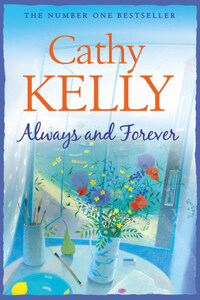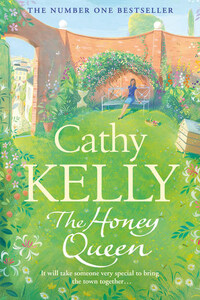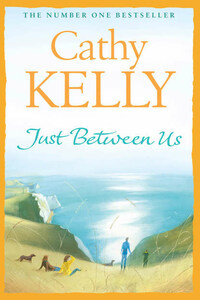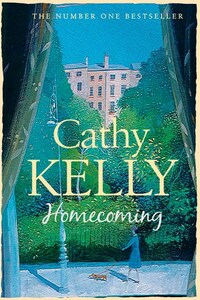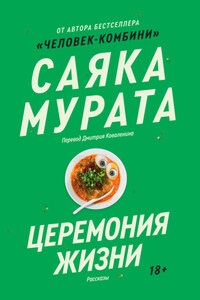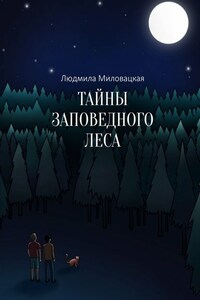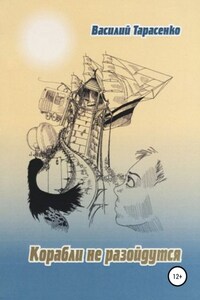Published by HarperCollinsPublishers Ltd 1 London Bridge Street London SE1 9GF
www.harpercollins.co.uk
Published by HarperCollinsPublishers 2012
Copyright © Cathy Kelly 2012
Cathy Kelly asserts the moral right to be identified as the author of this work
A catalogue record for this book is available from the British Library
This novel is entirely a work of fiction. The names, characters and incidents portrayed in it are the work of the author’s imagination. Any resemblance to actual persons, living or dead, events or localities is entirely coincidental
Source ISBN: 9780007466931
Ebook Edition © September 2012 ISBN: 9780007444434
Version: 2017-11-21
FIRST EDITION
All rights reserved under International Copyright Conventions. By payment of the required fees, you have been granted the non-exclusive, non-transferable right to access and read the text of this e-book on-screen. No part of this text may be reproduced, transmitted, downloaded, decompiled, reverse engineered, or stored in or introduced into any information storage and retrieval system, in any form or by any means, whether electronic or mechanical, now known or hereinafter invented, without the express written permission of HarperCollins e-books.
Primrose Cottage sat at the very end of Johnson’s Lane, an enchantingly pretty little house with wisteria snaking into the low roof and rose bushes clustering up to peer in the windows.
It was owned by the Malone sisters, Dolores and Genevieve, and although they didn’t get a lot of post, the sisters were on first-name terms with the postman, Bernard, who often stopped at Primrose Cottage for a quick cup of tea of a morning.
When he had anything for them, Bernard’s routine was to arrive at about nine thirty, by which time Genevieve would have completed the crossword and Dolores taken the dogs for their first little stroll of the day, up past that nice young couple’s cottage and back. The kettle would be boiling away happily on the range and Dolores’ scones would be warming in the small oven, ready for dollops of Genevieve’s crab-apple jelly.
Genevieve was the chattier, more outgoing of the two: older than her sister, Bernard thought, but more worldly and keen on wearing silver combs in her white hair. She was a smiling sort of person, always neatly dressed in flower colours and with tortoiseshell glasses perched on her nose. Dolores, who still had a hint of softest auburn in her hair, was shyer and more inclined to let Genevieve do the talking, but she never stopped chatting to her beloved dogs, feeding them little bits of scone all the time.
Time permitted Bernard to stop only a couple of times during his morning round and, despite a number of very talented housekeepers in the town, there was no place he liked stopping better than at the Malone sisters’. Their home reminded him of how life used to be when he was a boy.
‘You’re wonderful, the pair of you,’ Bernard would say, when he had a cup of tea in one hand and a bit of hot buttered scone in the other.
‘Oh, it’s nothing,’ Dolores would reply. ‘It’s just what Mother used to do.’
‘Yes,’ agreed Genevieve. ‘Mother always made her own bread, scones and jam, but she had the hens too.’
Both sisters looked a little mournful at this recollection. Mother had always made them feel inadequate. She had been amazing, a domestic goddess long before such a term had been invented. Everyone over a certain age in Ardagh agreed: there had been nobody like Mrs Malone.
She was a powerful woman, people said, using the rural sense of the word, which conveyed strength and purpose rather than an ability to lift tall buildings. She had been on every committee going, a stalwart churchgoer, organiser of the church flowers and a woman with firm views no matter the subject.
There were a few people who felt that perhaps Mrs Malone had been a bit too powerful when it came to setting the ground rules for her daughters. And a really critical person might say that Dolores and Genevieve Malone were still under her thumb even though Vera Malone was long since dead and buried.
Her ‘girls’ might be cruising towards seventy, but they still adhered to her strict rules and, somehow, along the way, they’d never courted, never got married and never moved out of Primrose Cottage with its long back garden, half an acre of ground that still boasted a vegetable garden and several crab-apple trees. Though no chickens.
Bernard Kavanagh could see that the sisters were bothered about the lack of chickens bustling about.


